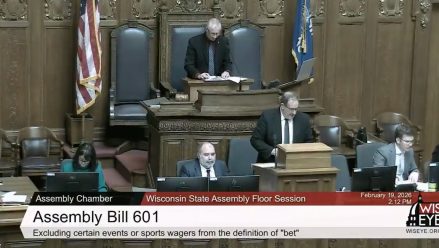Commercial sports betting operators in Colorado will likely soon be paying more to do business in that state. The state Senate late Tuesday afternoon passed HB 1311, which would sunset the ability for operators to deduct sports betting promotional bets. The vote was 28-7, and there was no discussion. The amended bill now goes back to the House for re-approval, and then to Gov. Jared Polis for his signature.
Tuesday’s session was the second to last before the legislature adjourns Wednesday.
The bill moved fairly steadily from the House floor through the Senate. It passed out of the House April 28, 52-13, before passing Senate Finance Committee last Thursday, 9-0, and the Senate Appropriations Committee, 5-2, last Friday.
Per the text of the amended bill, the amount of promotional deductions will begin to step down Jan. 1, 2026, with the writeoff disappearing completely by July 1, 2026. According to a fiscal note, the change could net at least $11 million more per year in tax revenue to the state.
Colorado voters legalized sports betting during the November 2019 election, and when betting went live in May 2020, operators were allowed to deduct 100% of promotional play. Because of this, Sen. Dylan Roberts last week said the effective sports betting tax rate in the state is 5.9%. The actual tax rate on wagering gross gaming revenue (GGR) is 10%.
Colorado still a cheap place to do business
Removing the promotional deduction would mean that betting companies would pay taxes on all bets placed, rather than being able to deduct promotional play from GGR. That, in turn would increase the state’s tax take. In Colorado, state proceeds from sports betting are earmarked for water projects.
At 10%, even without the promotional deduction, Colorado will remain one of the cheapest U.S. jurisdictions for wagering companies to operate in. Of the 41 U.S. jurisdictions where betting is legal, 11 have tax rates for digital betting that are 10% or less, and 13 have tax rates for retail betting that are 10% or less.
At least 11 other states allow operators to deduct some percentage of promotional play. Four other states allow for a 100% deduction in perpetuity. In Michigan and Virginia, operators can deduct promotional play for the first 12 months they are live.





